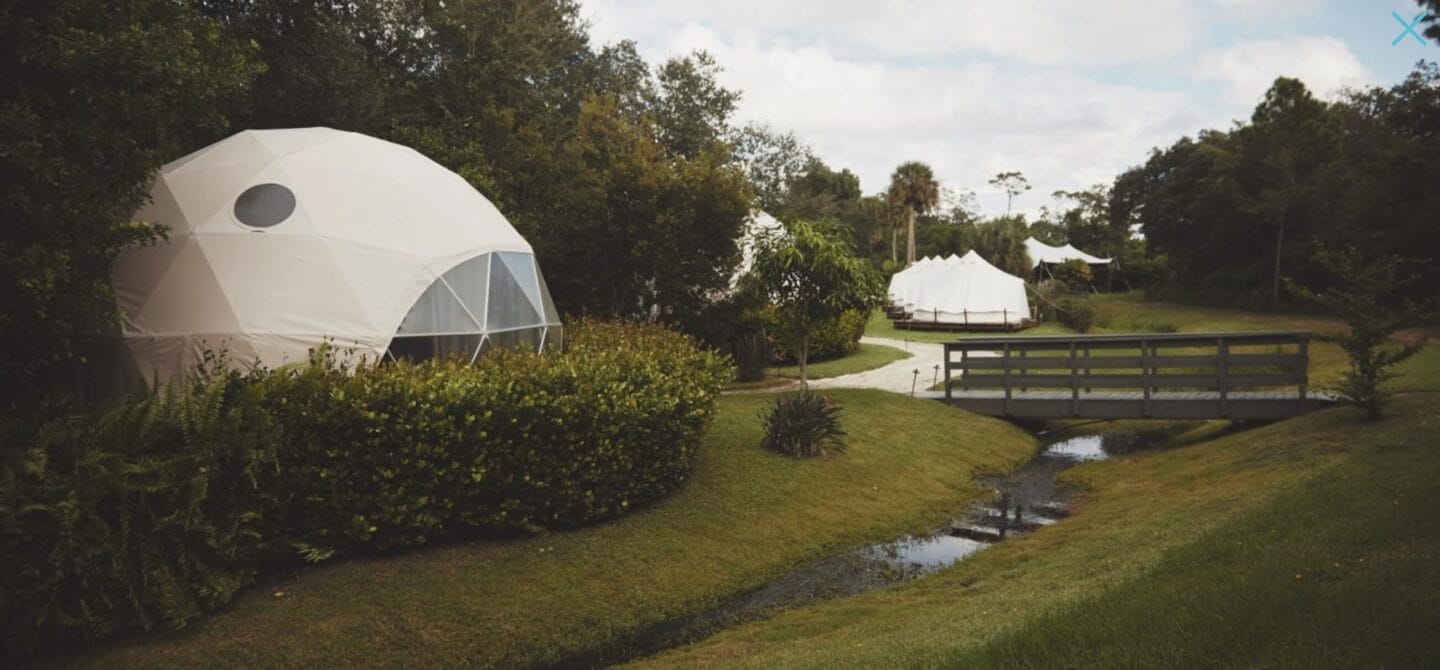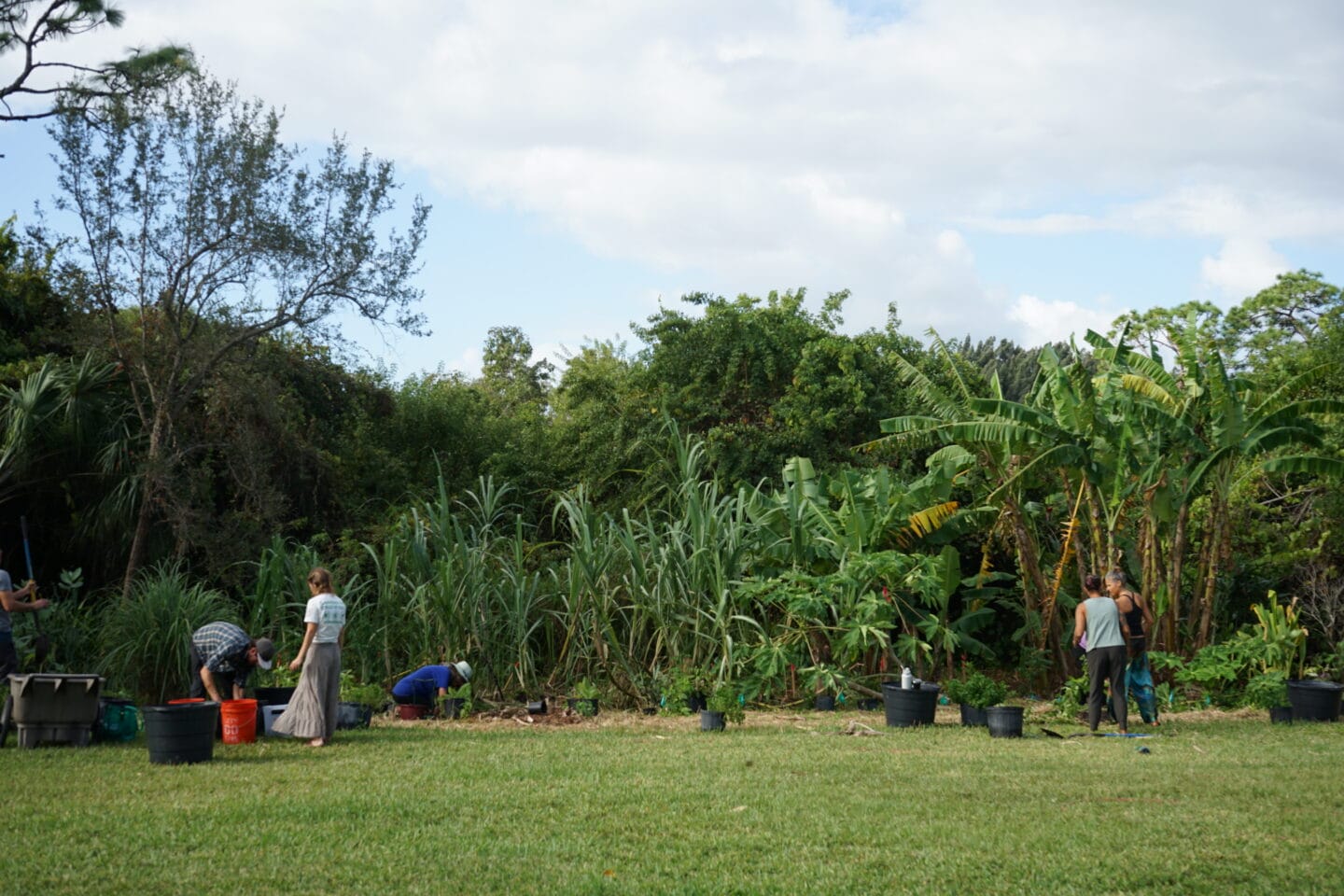As cities around the world reckon with climate challenges, biodiversity loss, and the social fragmentation caused by unchecked development, a new model for living is emerging—one that turns to nature not only for inspiration but for co-creation. Enter the “Bioregional Hub:” a place-based, integrated system of living that harmonizes human settlements with natural ecosystems. These hubs aren’t utopian dreams—they’re real-world prototypes reshaping how we live, build, govern, and grow. And they are poised to become the most vital infrastructure of our time.
What is a Bioregional hub?
Bioregional hubs are more than just eco-communities—they are living laboratories for regeneration, rooted in the ecological, cultural, and economic realities of their specific landscapes. Informed by regenerative design and Indigenous land stewardship, these hubs serve as blueprints for how humanity can thrive within the limits of nature—rather than in spite of them.
At their core, Bioregional Hubs integrate:
- Sustainable Land Stewardship: Using regenerative agriculture, permaculture, and rewilding to restore ecosystems
- Circular Economies: Fostering local production, closed-loop systems, and regenerative finance
- Resilient Infrastructure: Building with renewable energy, water conservation, and nature-based design
- Cultural Regeneration: Celebrating Indigenous wisdom, community resilience, and intergenerational knowledge
- Wellness and Education: Cultivating immersive spaces for ecological literacy and holistic well-being
These principles serve as the scaffolding for a new era of climate-adaptive, community-centered development.
From Movement to Model: The Origins of Bioregionalism
Bioregionalism emerged in the 1970s in response to the alienation of people from their environments. It asked a simple but revolutionary question: What if we lived in a way that truly honored the land we’re on?
The answers became more sophisticated over time. Today’s bioregional hubs are a synthesis of decades of environmental wisdom, design thinking, and community practice. They are shaped by movements like permaculture, Indigenous sovereignty, and regenerative urbanism.
And now, they’re shaping the future of cities.
“I believe the future of regenerative living lies in bioregional hubs—where communities are rooted in local ecology, regenerative principles drive economies, and collaboration sparks innovation. Bioregional hubs reconnect communities with their local environments, offering place-based solutions to our most pressing global challenges.” – Tony Cho, Founder & CEO, Future of Cities
Why Bioregional Hubs Matter Now
As the climate crisis escalates and social trust erodes, we need solutions that are:
- Localized: Tailored to the unique climate, culture, and challenges of a place
- Resilient: Able to withstand ecological shocks and economic disruption
- Inclusive: Designed by and for communities, not imposed on them
- Scalable: Capable of being adapted across urban, peri-urban, and rural settings
This is not just environmentalism—it’s regenerative placemaking. It’s where real estate, resilience, and reverence for nature converge.

ChoZen: A Living Example in Florida
This vision comes alive at ChoZen Eco-Retreat, co-founded by Tony and Ximena Cho along Florida’s San Sebastian River. Situated within a richly biodiverse watershed and in collaboration with organizations like Wildpath, Path of the Panther, and the Florida Wildlife Corridor, ChoZen operates as a bioregional hub in action.
At ChoZen, every decision—from water management to community programming—is rooted in local ecology. The land is not a backdrop, but a collaborator. With offerings like eco-tours, wellness immersions, and regenerative development workshops, ChoZen is catalyzing a cultural shift—one that moves us from extraction to co-creation.

Centering Conservation: CCRL
The heartbeat of this hub is the ChoZen Center for Regenerative Living (CCRL)—a nonprofit dedicated to conservation demonstration and community empowerment. CCRL connects changemakers, land stewards, artists, and youth in active regeneration, from habitat restoration to circular economic pilots.
It’s not about building back better. It’s about building forward—in harmony with nature, not in opposition to it.
The Future of Cities is Bioregional
Bioregional hubs like ChoZen are not outliers—they are prototypes for the next generation of human settlements. As cities continue to grow, we must ask ourselves: How do we grow with integrity, with care, and with creativity?
“The future of cities will be shaped by those who remember how to live in deep relationship with place.” – Tony Cho
It’s time to shift from monocultures to biodiverse neighborhoods. From concrete jungles to living ecologies. From top-down design to grassroots co-creation.

Participatory Co-Design & Proactive Balance for Regenerative Futures
“Oceans should be viewed as bodies of water that connect people, cultures, and nations, not separate them.”
Professor Ramsay Taum, Blue Continent
Oceans Month is almost over but the life beneath the surface continues to thrive. Our oceans are our greatest teachers of collaboration. This month we’ve been in awe of our underwater friends and their ability to move together & protect each other.
At Future of Cities headquarters we’ve been focusing our attention on Ecological Balance, our giving and receiving, ebbing and flowing, slowing down to listen to the wisdom that lies at the depths of the oceans, beneath our soils, in the rays of the sun & through the powers of the wind.
Preserving our planet’s ecosystems involves deep listening, participatory co-design, co-creation, collaboration and the implementation of varied practices and technologies for maintaining an active balance within the built environment. There is no one size fits all solution and cohabitating requires cooperation.
Ecological balance…
A foundational principle of our Regenerative Placemaking framework is “ecological balance.” Ecological balance is fundamental to mitigating biodiversity loss and securing a more sustainable future for the next seven generations. Within ecological balance we honor our past to teach us how to harmoniously adapt & coexist with the various climate changes at hand in the present. The intricacies of ecosystems is a complex web of interconnectedness which requires active participation and continuous balancing for lasting change.
This month, as we immerse ourselves in the oceans of change, we’ve been wondering, with all that the ocean selflessly provides for us, in what ways can we continue to innovate and give back to our oceans?
As conscientious stewards of digital technology & ecological policymaking, we have a shared responsibility to deploy efforts and resources to preserve indigenous cultures while simultaneously recognizing, honoring and amplifying the immense contributions that indigenous leaders and communities are continuing to make towards modern technological advancements.
At the end of May we gathered for a historic geopolitical event with some of our close partners and global leaders at the ChoZen eco-retreat for a roundtable on regenerative technologies and cultural identity. Our Future of Cities team joined in a land blessing, with prayers led by Hawaiian indigenous leader and professor Ramsay Taum.
During their time at ChoZen, Blue Continent Institute generously shared with us their visions and goals on cultural respect and identity, passing on perspectives of island states and their depth of understanding for the importance of ecological balance beginning with the ocean.
The wisdom that the ocean carries gifts us many insights, beyond water as natural wonders or utility for human transactions, and instead takes us on a much deeper journey to look within ourselves for the inner knowing that we are made of the ocean and are not separate from it.
FOLLOW US on Instagram to catch the next waves or SUBSCRIBE to our newsletter to stay in the loop with all that we’re up to on the ground and underwater.
